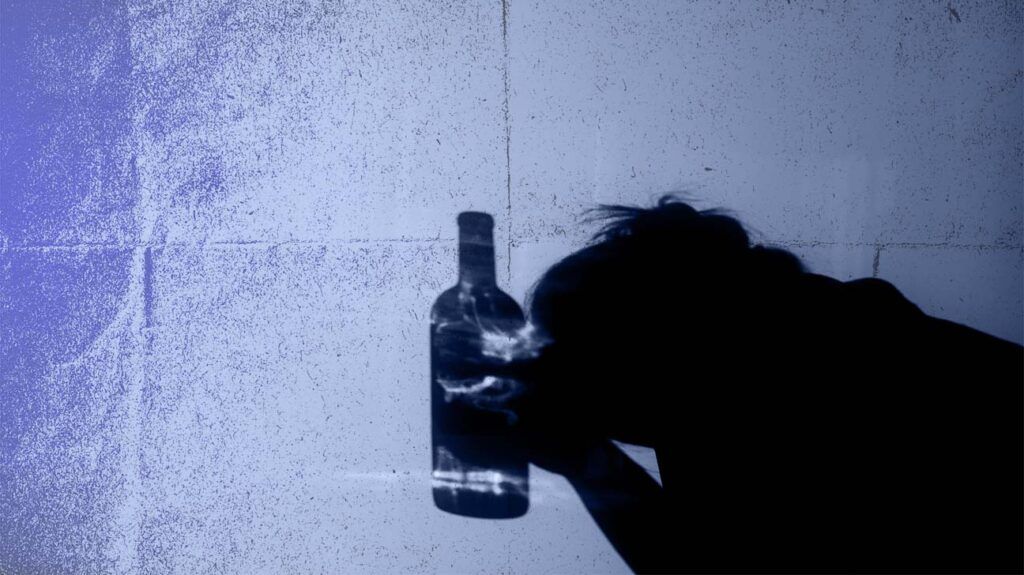Narcolepsy and alcohol can cause daytime sleepiness. Although alcohol does not cause narcolepsy, it can worsen symptoms.
Narcolepsy is a chronic neurological disorder affecting the brain’s ability to regulate sleep-wake cycles. It causes overwhelming daytime sleepiness and sudden sleep episodes.
Experts do not fully understand the causes of narcolepsy. Still, they link it to low levels of a chemical in the brain known as orexin or hypocretin, which controls certain aspects of sleep.
Alcohol does not appear to cause narcolepsy. However, as a depressant, it may exacerbate narcolepsy symptoms by altering sleep architecture and affecting the quality of nighttime sleep.
This article looks at narcolepsy and alcohol, exploring how they interact and looking at the effects of alcohol consumption on those living with narcolepsy.

Alcohol consumption can affect people with narcolepsy, worsening their symptoms. As a depressant, it can reduce central nervous system function and contribute to more pronounced daytime sleepiness.
The orexin (hypocretin) pathway may factor into both alcohol use and narcolepsy. A 2020 rodent model study looked at excessive daytime sleepiness in people with alcohol use disorder (AUD). They found that orexin expression decreased during alcohol withdrawal.
Orexin is a chemical in the brain that regulates rapid eye movement (REM) sleep. When levels decrease, it can trigger sleepiness. Low orexin is a hallmark feature of type 1 narcolepsy with cataplexy.
What is narcolepsy?
Narcolepsy is a chronic sleep disorder. People with the condition experience overwhelming daytime drowsiness and sudden attacks of sleep that disrupt their everyday lives.
In type 1 narcolepsy, people may also experience cataplexy. Strong emotions, such as laughter, surprise, or anger, can trigger this sudden loss of muscle tone. People may notice weakness in the face, arms, legs, or trunk, leading to slurred speech or complete collapse. Despite the loss of muscle control, the person remains fully conscious. The severity and duration of cataplexy episodes can vary significantly among individuals with narcolepsy.
Type 2 narcolepsy does not lead to cataplexy. However,
Drinking alcohol can worsen narcolepsy symptoms. Alcohol alters sleep rhythms, leading to disrupted sleep and decreased quality of nighttime rest. For individuals with narcolepsy, this can result in increased daytime sleepiness and a higher likelihood of sudden sleep attacks.
People with narcolepsy need to be aware of how alcohol might affect their condition and consider limiting consumption.
No evidence suggests that drinking alcohol causes narcolepsy directly, and there is no significant amount of research in this area.
However, a 2021 case report reviewed two cases of people who developed narcolepsy after many years of heavy alcohol use. The authors concluded that alcohol can cause sleep disorders, including narcolepsy. However, it is unknown if the participants had undiagnosed narcolepsy or if it stemmed from long-term depression of the central nervous system.
Alcohol could affect narcolepsy medication, and combining the two could have serious consequences.
Doctors may prescribe sodium oxybate for cataplexy, but a person
Generally, it is best to avoid alcohol when taking any medications as it can alter or counteract their effects on the body and could lead to increased heart rate, blood pressure, or other negative effects.
Experts are
A hallmark of narcolepsy is the loss of neurons, or brain cells, that produce hypocretin. Autoimmune responses, infections, or other factors could trigger this loss, but health experts have not yet identified the precise process.
There is no cure for narcolepsy, so treatment aims to manage symptoms. A treatment plan
Doctors may also prescribe serotonin and norepinephrine reuptake inhibitors or selective serotonin reuptake inhibitors to suppress REM sleep. These antidepressant medications may help with cataplexy, hallucinations, and sleep paralysis.
Because there is no full consensus on what causes narcolepsy, health experts do not know if the condition is preventable. However, effective management can improve the quality of life for those living with narcolepsy. Key strategies include:
- Adhering to treatment plans: People need to take medications as a doctor has recommended and have regular follow-up appointments to allow for adjustments as necessary.
- Avoiding alcohol: Due to its potential to disrupt sleep patterns and interfere with the effectiveness of narcolepsy medications, people need to consider abstaining from or minimizing alcohol consumption.
- Lifestyle adjustments for sleep hygiene: Implementing restful sleep practices may help manage symptoms. They include maintaining a consistent sleep schedule, creating a comfortable and conducive sleep environment, and engaging in relaxing activities before bedtime.
- Scheduled naps: Planning short naps during the day may reduce daytime sleepiness, improving alertness and overall function.
- Stress management: Techniques, such as mindfulness, yoga, and meditation, can reduce stress, which may, in turn, improve sleep quality and symptom management.
Although alcohol does not appear to cause narcolepsy, it can significantly affect those with the condition by worsening symptoms and interfering with the effectiveness of medication.
Through careful management and lifestyle adjustments, individuals with narcolepsy can minimize the effects of alcohol on their condition and maintain their quality of life.
